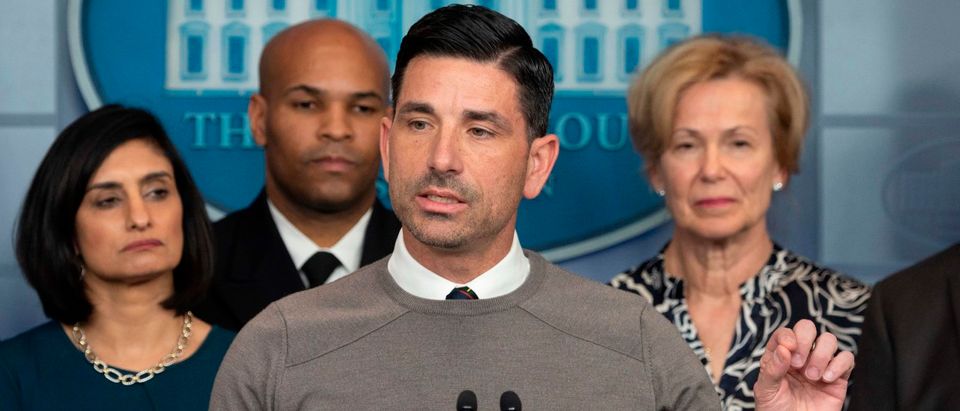This week – on April Fool’s Day, appropriately enough – marks a significant date for two government programs designed to flood the U.S. labor market with foreign workers over the next year. On April 1, USCIS is set to begin accepting H-1B visa petitions from companies seeking skilled foreign workers, while industries that want lower skilled labor for so-called seasonal jobs begin getting their allocation of foreign H-2B workers. Exercising his discretionary authority earlier this year, Acting Homeland Security Secretary Chad Wolf authorized an additional 35,000 H-2B visas be issued above the statutory cap of 66,000 for the year.
Let us count the ways that these are bad – no, terrible – programs, given where the country finds itself at this moment, and why they must be stopped dead in their tracks:
Soaring unemployment. For much of the past several years, we have been treated to relentless complaints on the part of U.S. business interests about the “problems” posed by historically low unemployment rates. COVID-19 seems to have “solved” that problem, if it ever really was one.
Last week, some 3.3 million Americans filed for unemployment. That figure is not only a one-week record for new unemployment claims, it more than quadrupled the old single week record set in 1982. Public health officials predict that the COVID-19 pandemic is going to get worse before it begins to get better, while Treasury Secretary Steven Mnuchin predicts that unemployment could hit Depression era levels of 20 percent before this crisis is behind us — and, regrettably, that is not likely to be any time soon.
Those numbers alone should be sufficient for Acting Secretary Wolf to exercise his authority, not to mention common sense, and issue a postponement of accepting H-1B petitions and halt the admission of new seasonal guest workers under the discretionary increase he authorized a few months ago.
White collar and skilled professional unemployment is just beginning to spike. The first economic casualties of the COVID-19 crisis have been people who work in service industry jobs. The initial impact on people in more skilled positions has been less severe thanks to technology that allows them to work from home. But they cannot be shielded from the impact of a severe economic downturn indefinitely.
Two months ago it was debatable whether an additional 85,000 H-1B workers was something the economy needed or something employers wanted. That debate is now moot. As layoffs hit tech, finance and other skilled sectors of our economy there will be more than an ample supply of American workers available to do whatever jobs need to be done.
Seasonal jobs? What seasonal jobs? The stated purpose for the H-2B visa program is to provide employers with low-wage foreign workers to do jobs during peak season in areas of the labor market like hospitality, restaurants, amusement parks and other recreational industries.
We don’t have any recreational or tourism-related industries right now. Nobody’s going to restaurants, swimming pools, amusement parks or similar places because they’re all closed. Most Americans aren’t even leaving their homes, and foreign tourism is all but nonexistent for the forseeable future. If ever there was something the country does not need it is thousands of foreign workers to fill jobs in industries that are being decimated by COVID-19.
Who’s going to screen all these guest workers for COVID-19, and how are we going to get them here? COVID-19 has been declared a pandemic, which means that there is virtually no place on earth where people have not been exposed to the virus. The United States, like most other countries, has imposed costly but necessary travel restrictions. One of the hallmarks of this health crisis is that we do not have the capacity to test most of our own people for the virus (which is why most of us have been ordered to shelter in place). How are we going to screen guest workers from dozens of countries to ensure that they are not infected? Or, on an even more practical level, how are these workers supposed to get here when most flights have been grounded?
These are extraordinary times, to say the least. We are being forced to take extreme measures to stop the spread of the virus and pump trillions of dollars into the economy in an attempt to keep it afloat. Putting the brakes on an infusion of foreign guest workers at a time when more than 3 million people lost their jobs in one week would seem to be about the least controversial and most obvious steps we could take right now. It is a call that Acting Secretary Wolf can and must make immediately.
Dan Stein is president of Federation for American Immigration Reform (FAIR).


